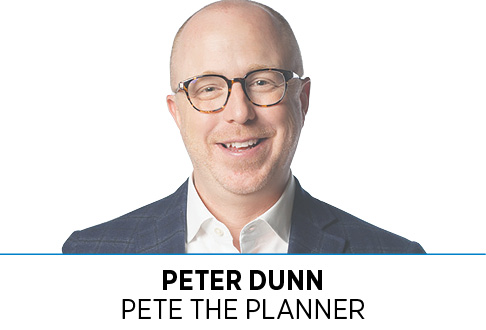Subscriber Benefit
As a subscriber you can listen to articles at work, in the car, or while you work out. Subscribe Now I’m seeking calm. I haven’t always sought calm, but I am certainly seeking calm right now.
I’m seeking calm. I haven’t always sought calm, but I am certainly seeking calm right now.
I remember originally opting out of calm in my mid-20s, and these past 20 years have certainly been exciting. No, I’m not talking about my career. Nor am I referencing the never-ending duties of parenting. Instead, I’m seeking perpetual calm in my personal finances. After two decades of backing myself into a corner in which the only answer was “more money,” I’m purposefully seeking a path in which calm arrives on the heels of less money.
Allow me to turn the clock back 10 to 15 years to explain. When I was in my early 30s, filled with ambition and a nearly insatiable appetite for more of whatever was in front of me, I created a dynamic in which satisfaction and peace came only when my career generated enough financial resources to cover the checks my desires wrote.
Oddly, it worked. I say oddly because “sadly” seemed both appropriate and inappropriate. I could generate an idea on how to spend more and more money, then match that idea to the work accomplishment needed to pay for it. Even though I have set money aside along the way, my lifestyle, like that of many Americans in that same stage, continued to ratchet up.
As you might imagine, there’s a weird side effect to this sort of dynamic: My career has clipped along at a steep trajectory. I’m not complaining, but I do feel that the hamster wheel of chasing sustainability is in itself neither sustainable nor prudent. Why would I want to participate in a dynamic in which the only strategy is that of heightening stakes? It’s an extreme way to operate. It’s exhausting.
I want to deviate for a moment to examine the justified allure of moderation. You can take just about any desirable input, tip the quantity a bit too far, and the law of diminishing returns starts to take control. I like bourbon. To explain my point further via this lens seems unnecessary. The same goes for french fries, cabbage, cheese, and even exercise and water. Time and time again, moderation proves to be both sustainable and nearly undefeated.
Yet my need for income has increased for over two decades. And guess what—yours probably has, too.
Please don’t take this as me wanting to coast smoothly into retirement at this point in my career. In fact, the opposite is true. I’m ready to crank up my efforts and intentionality at work higher than ever before. I just want the gap to widen between what I make and what I need.
Previously, I have addressed this gap by increasing my income. But that has still led to consistently increasing my lifestyle. Again, I’m not alone. Most of the people I’ve studied in their mid-40s and 50s are coming to a similar conclusion. They must shed the two decades of the escalating obligations they’ve gathered, just to feel like they have a chance of retiring in their 60s.
Other than a mindset shift, I do actually have a tangible strategy here. I’ve identified my opportunities to ratchet my lifestyle back down. I’ve identified at least five major expense areas that will go away in the next 10 years. Three involve expenses related to my children (college savings, travel sports, and a smorgasbord of others) and will decrease our monthly expenses by a significant amount. Then there are the two major expense areas related to shelter and transportation. Combined, these five eliminated expenses are shocking.
I’ve said it before, and this won’t be the last time you hear or read me declare it: Instead of banking my retirement dreams on the idea of having a lot of money, my sincere goal is to not need a lot of money. Having a front-row seat watching countless people employ the “have a lot of money” strategy has reinforced how difficult that strategy actually is, especially in the face of our own wants and needs.
The hamster wheel needs to be replaced. The current model rewards hard work with comfort, then requires increasingly hard work and success to provide increasing levels of comfort. I want the new wheel to reward hard work with increasing levels of peace and clarity, which is more conducive to great work, which then leads to more peace and clarity. Are you looking for a new hamster wheel, too?•
__________
Dunn is CEO of Your Money Line powered by Pete the Planner, an employee-benefit organization focused on solving employees’ financial challenges. Email your financial questions to [email protected].
Please enable JavaScript to view this content.
